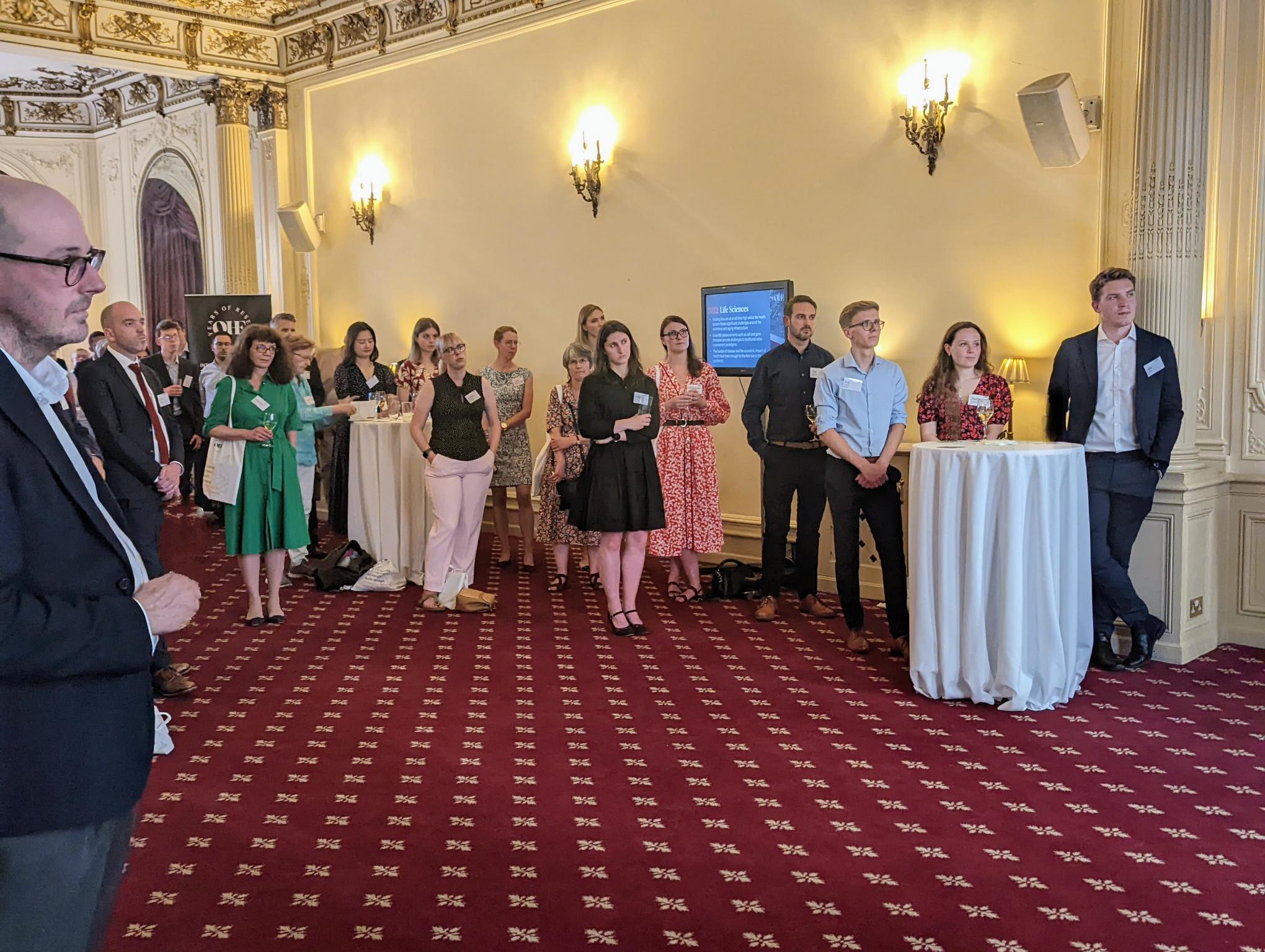Sign up to our newsletter Subscribe
Analysing Global Immunisation Expenditure

Sign up to our newsletter Subscribe


OHE Lunchtime Seminar with Steve McKenna, 17th September 2019. The seminar will examine conceptual and practical aspects of measuring value in health care. OHE Lunchtime Seminar with Stephen McKenna on ‘How Do We Measure the ‘Value’ in Value-based Care?’. To…
OHE Lunchtime Seminar with Steve McKenna, 17th September 2019. The seminar will examine conceptual and practical aspects of measuring value in health care.
OHE Lunchtime Seminar with Stephen McKenna on ‘How Do We Measure the ‘Value’ in Value-based Care?’. To be held on 17 September 2019 from 12 p.m. to 2 p.m.
Value-based care differs from a fee-for-service approach, in which providers are paid based on the amount of healthcare services they deliver. The “value” in value-based healthcare is derived from measuring health outcomes against the cost of delivering the outcomes. The weakness is that ‘value’ is not clearly defined and outcome measures focus on issues that are primarily of interest to clinicians and not patients. An alternative outcomes model will be presented that considers the extent to which a patient’s fundamental needs are met. In the model, ‘patient value’ is equated to patient-relevant outcomes that can be related to the cost of achieving these outcomes. This requires an understanding of how disease and its treatment influence a patient’s fundamental needs. Too often, our health systems encourage health professionals to treat the illness, not the person. They chase narrow biomedical indicators, which, while important, don’t capture all that matters to the patient.
Prof Stephen McKenna will review current methods of measuring health outcomes and show that they are not addressing the needs of patients. He will describe a model of health outcomes that does address patients’ needs and illustrate how this has led to the development of a range of outcome measures that are widely used in research, clinical trials, and clinical practice. Examples of the usefulness of these instruments will be presented. It will be shown how the instruments are able to demonstrate the value to patients of both clinical and non-clinical interventions (either separately or combined), and how this can help to identify true cost-effectiveness and value-based care. It will be argued that this approach allows society to become healthier while reducing overall healthcare spending.
Stephen McKenna PhD is a psychometrician who has spent his career addressing theoretical issues of health outcomes measurement and improving the validity and responsiveness of health outcome measures. He is the Director of Research at Galen Research and Honorary Professor of Population Health at the University of Manchester. He and his team have developed more than 30 disease-specific measures, each of which has been adapted for use in up to 60 languages. He lectures and publishes widely to international audiences.
View the full seminar invite here.
The seminar will be held in the Sir Alexander Fleming Room, Southside, 7th Floor, 105 Victoria Street, London SW1E 6QT. A buffet lunch will be available from 12 p.m. The seminar will start promptly at 12:30 p.m. and finish promptly at 2 p.m.
If you would like to attend this seminar, please send an email to ohegeneral@ohe.org to secure your place.
An error has occurred, please try again later.
This website uses cookies so that we can provide you with the best user experience possible. Cookie information is stored in your browser and performs functions such as recognising you when you return to our website and helping our team to understand which sections of the website you find most interesting and useful.
Strictly Necessary Cookie should be enabled at all times so that we can save your preferences for cookie settings.
If you disable this cookie, we will not be able to save your preferences. This means that every time you visit this website you will need to enable or disable cookies again.
This website uses Google Analytics to collect anonymous information such as the number of visitors to the site, and the most popular pages.
Keeping this cookie enabled helps us to improve our website.
Please enable Strictly Necessary Cookies first so that we can save your preferences!
